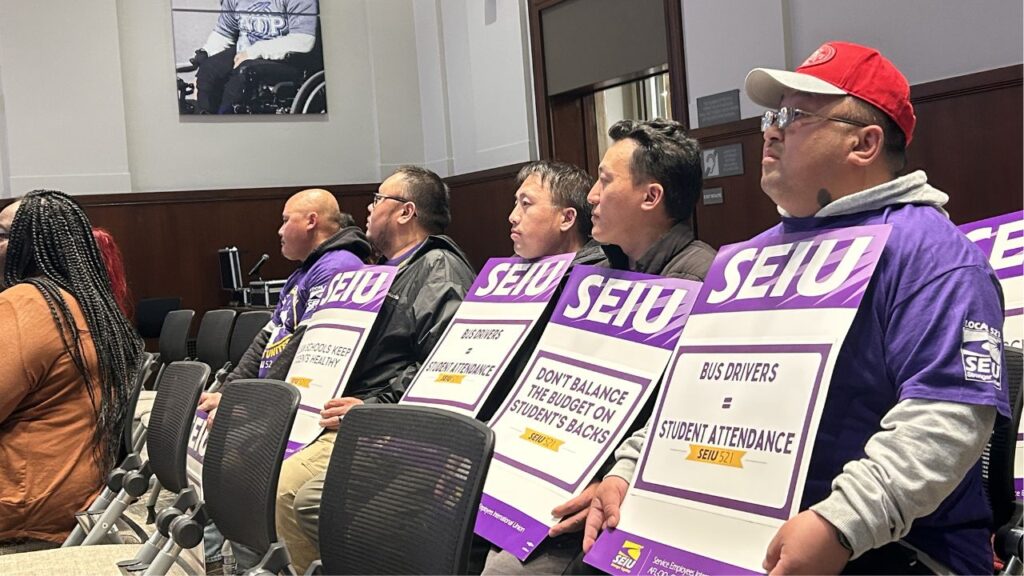
- Former Congressmember TJ Cox asked for a trial at a federal court hearing on Wednesday in Fresno.
- He is charged with 28 counts of fraud, money laundering, and campaign contribution violations.
- Prosecutors say they might pull a plea offer off the table.
Share
|
Getting your Trinity Audio player ready...
|
Former Congressmember TJ Cox asked for a trial at a federal court hearing on Wednesday in Fresno. However, his attorney is hopeful a plea deal might be worked out with prosecutors.
Cox, D-Fresno, served one term in Congress from 2019 to 2021. In August 2022, the Department of Justice charged Cox with 28 counts of fraud, money laundering, and campaign contribution violations. This was the first time he appeared in-person for his court case.
In federal court on Wednesday afternoon, Cox did not enter a change of plea and instead requested a hearing to set a trial date. He previously pleaded not guilty to all charges.
Visiting Judge Linda Lopez, out of U.S. Court Southern California District of California, urged Cox to make the best decisions.
She set the next hearing for Dec. 11.
”There are a couple of details we are working on,” Cox’s defense attorney, Mark Coleman, told the judge.
Speaking with the media afterward, Coleman said two years of negotiations have not been enough time. He would not give an update on how those negotiations have been going.
“There’s always risk in federal court (taking the case to trial). I mean, ultimately, 97% of people that walk through this doors are convicted of something. We just want to make sure the agreement that we enter into is a fair agreement,” Coleman said.
Former Congressmember TJ Cox leaves a federal courtroom in Fresno. He is now seeking a trial date instead of entering a change of plea on a fraud charges. pic.twitter.com/gGZbPoWtfs
— David Taub (@TaubGVWire) September 25, 2024
Prosecutor: Plea Offer Might Be Revoked
Federal prosecutor Henry Carbajal said the plea arrangement may not be on the table by December.
“That’s a choice Mr. Cox will have to make. There’s advantages to an offer. There’s disadvantages to an offer. And he has to weigh the advantages against the disadvantages. And we make a decision,” Coleman said.
None of the accusations occurred when Cox was a congressmember. They stem from his time running several businesses in the Central Valley.
Sources close to the plea negotiations said the government offered Cox 56 months in prison.
The government said Cox used multiple bank accounts to conduct business for Central Valley NMTC, and California Custom Processors. In some cases, he allegedly used his personal accounts for business finances.
“His reputation in the community is a large part of our considerations. I’ve spoken with a lot of people who are purportedly listed as victims, all of whom believe that Mr. Cox was fair, forthright and honest with them. But federal law can be very unforgiving and a mistake or a the best of intentions does not necessarily lead to an exoneration, if you committed the act,” Coleman said.
Carbajal was not available after the hearing, which lasted approximately two minutes.
Cox: No Loss for Investors
A legal analysis conducted by Cox’s attorneys obtained by GV Wire questions the amount the federal government says Cox allegedly defrauded business partners and investors.
Among 10 complicated business transactions, only once did someone possibly lose money, the analysis stated.
Omni Health wired a total of $150,000 into an account for Central Valley NMTC. In multiple transactions, Cox transferred the money into other accounts, including personal accounts. Cox transferred $20,000 back to the NMTC account.
While the analysis called it a $130,000 loss, it said that the company “received precisely what they bargained for” — meaning it received the service it paid for.
It is possible, the analysis stated, that Central Valley NMTC recouped the money when Cox sold his shares of the company. More investigation is needed, the report said.
“From a mitigation standpoint, it appears that ultimately the lenders and other entities … received a full return on their investments, as well as substantial additional benefits, while TJ actually incurred substantial net losses,” the analysis concluded.
Coleman said Cox “feels the weight of this.”
RELATED TOPICS:
Categories

Taylor Swift Asks US Government to Block ‘Swift Home’ Trademark

Is ChatGPT Down Again? Here Is What We Know















